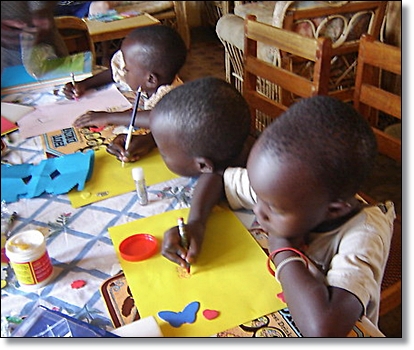Education: Has Africa Missed the Point?

 |
| Pupils in class Photo courtesy |
Learning is a complex subject that experts have sought to streamline 'how best to do it' but even at that, it is still studied and various views proffered. Environment, culture, attitudes, socio-economic conditions and factors all contribute towards learning.
At very young age, our parents can tell stories how brilliant we were and they felt they had given birth to geniuses. But in later life and age, all the once brilliant child[ren] are not so.
My wife always says that every baby is cute. I agree. But one day, I said, if all babies are cute, how come the world is full of ugly people? Where and when did the change happen? How did a promise that a child once show fade?
Learning is a constant endeavor; a 24/7 exercise that must be sustained, practical and effective. Reciting letters, numbers and state capitals, governors, presidents and all that, while they may be seen as a mark of brilliance, has nothing to do with learning.
Many kids can count up to 100 at early ages and read the alphabets, but that is not what should matter. In US, many Americans are oblivious to what their county seat of government, state capital, name of their governor is. When asked, they always retort: what has that question and the associated answer have to do with the price of bread? In other words, it does not matter if I get the answer wrong.
Learning is appreciated and better recognized when it has relevance to one's current situation or offers an avenue to improve in the future. Sing song recitals, I am afraid does not cut it in learning. Life's latter development occasioned by life encounters and how one sees and values the impact of such gives meaning for living, throwing off learning necessary tools.
How do we learn?
Having observed myself and those I went to school with, and coupled it with daily interactions prompts me to ask, how do we learn?
Some will hoist the virtues and values of Montessori theory, western style and standard of learning and practices, and its wonders and all. But some still fail. Leading to the notion, there is no one way that is universally beneficial.
My mom used to ask how many times something would happen to me before I learnt my lesson. She was neither a professor of teaching nor education. But since learning may not be from formal and structured environments, which today's professionals tend to overlook and downplay, there are innate talent and knowledge imbued in mere observation driven by pragmatism and often underemphasized applied common sense. My mom exported common sense and sought to engage her pupils, us her children. It left marks and made lasting impression.
My mom reminded me that while we all came from her - biological connection, we would definitely end up with different situations and circumstances.Her point? People are individuals regardless of biological connection [womb], and should be treated as unique in their approach to learning. Outside of that, we should consider culture, political environment, religion and all. Having said that, one approach that can be adapted to the majority of learners, was thought of and stated some 2,500 years ago by Confucius,
"I hear, I forget; I see, I remember; I do, I understand."
In other words, the interpretation has been to challenge students to figure out how to set goals to accomplish various tasks, guide them in their research and tactics, which they adapt to their unique style of learning, and then inspire, coach, and encourage them.
Also apply and use diverse teams to help them work better in groups. The bottom line is, "TEACHING" and lecture, are the most unproductive way of learning for almost all students. The student does the work, then coach. The students get very creative and feel empowered with self-confidence! Yes, there are failures, but very few over the many years fall into this category.
By Ejike Okpa II. Dallas, Texas.
